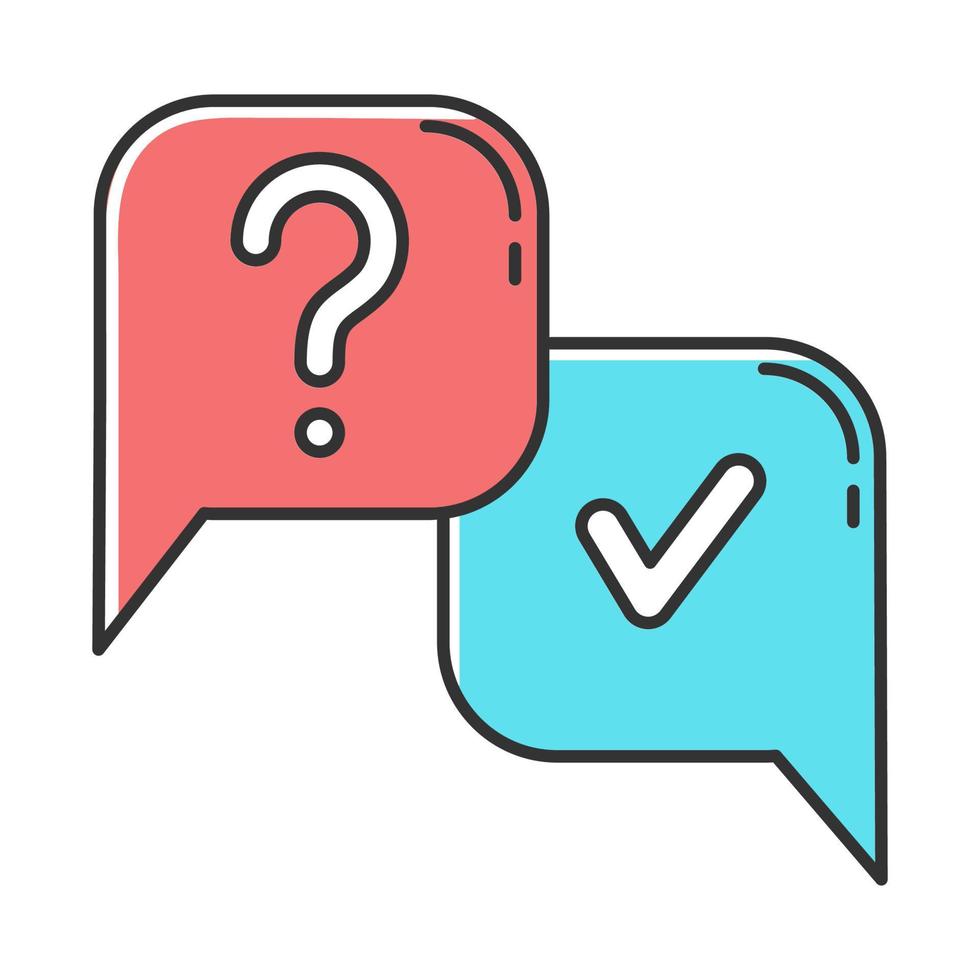What are Japanese job interviews like?
This can define whether or not you get the job. So, what are job interviews like in Japan? What can we expect from them? What do employers expect from candidates? What are the best answers I can give?
All this and more is what we tell you in this article.
Basic Interview Knowledge

As we said previously, understanding what Japanese job interviews are like is key when it comes to getting a job.
Normally, when looking for a job in Japan, recent graduates first attend information sessions in companies, then make a job application and selection (resume, CV), then take a written exam or an aptitude test and then the job interview arrives to end with the job offer.
Depending on the company, they may need more than one interview.
In general rules you will not find things out of the ordinary during a job interview in Japan, in fact, they are quite standard, always start by introducing yourself, from there they will ask you personal questions, things like what are your strengths or weaknesses and why you have chosen Japan. Following this, they will want to find out about your academic background and your professional career, and finally, they will ask you questions about the reason why you chose that company, what your ambitions are, and your conditions within the company.
At a given moment they will give you the opportunity to ask all the questions you want both about the company and about the position itself, we recommend that you dare to ask whatever you want, since not doing so would indicate a lack of interest on your part.
How should you address the company you are applying for during the interview: 御社 (onsha) or 貴社 (kisha)?
In Japanese job interviews, there are two terms that show respect for the company you are addressing: 御社 (onsha) and 貴社 (kisha).
御社 (onsha): considered a term of 敬語 (keigo / honorific language) in verbal communication, it is used when we talk to people in the company. It will always be okay to use this term, there is no mistake.
貴社 (kisha): considered a keigo (honorific language) term used in written communication.
So, this term should only be used in documents that you send to companies, that is, along with your resume, your entry sheet, emails, cover letter, etc.
Essential Terms for a Good Japanese Job Interview

– 面接 (mensetsu): Interview (Formal interview – part of the employee selection process).
– 面談 (mandan): Interview (It is not part of the hiring process, it is an informal chat that serves as an exchange of information).
–履歴書 (rirekisho): Curriculum.
–職務経歴書 (shokumu keirekisho): Curriculum vitae.
–職歴 (shokureki): Work history – Professional experience.
–学歴 (gakureki): Academic history/Education.
–内定 (naitei): Prospective job offer.
Living in Japan is possible!
We accompany you in every step, from CV building to interview practice.

Here is a list of terms that you will surely hear in an interview:
– 長所 (chousho) / 強み (tsuyomi) / 得意なこと (tokui na koto): Fortresses.
– 短所 (tansho) / 弱み (yowami) / 苦手なこと (nigate na koto): Weaknesses.
– 趣味 (shumi): Hobbies/hobbies/interests.
– 性格 (seikaku): Personality.
– 個性 (kosei): Personality / individuality / character.
– 実績 (jisseki): Achievements.
– 経験 (keiken): Experience.
– 体験 (taiken): Personal experience.
– 希望 (kibou): Aspirations.
– 質問 (shitsumon): Question.
– 自己紹介 (jiko shoukai): Personal presentation.
– 応募動機 (oubodouki): Reason for application.
– 志望動機 (shiboudoki): Reason for application/motivations.
– 勤務条件 (kinmu jouken): Working conditions.
– 在留資格 (zairyuu shikaku): Residency status.
– 在留期間 (zairyuu kikan): Period of stay in Japan.
– ~教えてください。 (~oshiete kudasai): Please tell me…
How to Prepare for a Job Interview in Japan

Normally to be able to apply in a Japanese company, you will need at least a level of business Japanese, we recommend JLPT N2 or N3 if you are in the branches of engineering and technology, especially if you want to work in a Japanese company.
If you don’t have at least this level of Japanese, you may find it quite difficult to pass the interview.
To get started, you can dedicate yourself to learning the basics about interviews and preparing with the most frequently asked questions.
Prepare ahead of time
Ideally, you should prepare and be ready at least one day before the interview, this way you will have everything in order before leaving your home.
Don’t forget the following list of things you should take with you:
– Printed CV (if possible more than one copy).
– Resident card.
-Wallet.
– Mobile phone, charger, portable battery.
– Notepad, notebook.
– Check the weather forecast so that a rain does not catch you off guard.
What to wear in a job interview
For the Japanese, the correct way to dress at work is to wear formal clothes.
It is expected that the applicants, men and women, wear suits and wear their hair arranged (natural color) if it is long it must be up. Women can wear knee-length skirts and skin-colored stockings, their nails should be well-groomed, polish-free or natural-colored, while men should wear solid-colored ties.
They should avoid the use of perfumes and colognes and wear simple makeup, nothing excessive, always in a natural style.
Manners
– Be Punctual: To arrive at the correct time you must be present 15 minutes before the stipulated time.
– Complete Attention to the Interviewer: Put your phone on “silent” mode or turn it off so you won’t be interrupted during the interview, this way you show respect to your interviewer.
– Correct Way to Enter and Leave the Room: To enter you must knock on the door 3 times, once you are told that you can enter you must do it at the same time as you say: “Shitsureshimasu (失礼します / excuse me)”. Then take a short bow to the interviewers, introduce yourself briefly, and take a seat in unison with “Shitsureshimasu” again.
At the end of the interview, thank the interviewers, bow again, and say “Shitsureshimasu” out loud, then leave the room.
– Use of Polite Language: If you can speak Japanese fluently, we recommend that you use Keigo (敬語 / honorific language) – but in case you are not, try to end all your sentences with – masu / desu – and avoid using colloquial language.
– Proper Sitting Posture: Sitting is not a trifle, you must do it correctly, for this, do not cross your legs and keep your feet flat on the floor.
It would be best if you sit with your knees together placing your hands on your thighs or knees.
– Use both hands when you hand over or receive something: Whether it’s when you give your resume to the interviewers or some other document as well as when you receive it back or when they hand you some other object, always do it with both hands.
It is common for the following phrases to be said at the end of an interview:
– 本日は貴重なお時間をいただき、ありがとうございました。
*Honjitsu wa kichou na ojikan wo itadaki, arigatou gozaimashita. * – *Thank you for taking your valuable time today*.
– 何卒よろしくお願いいたします。
*Nanisotsu yoroshiku onegai itashimasu. * – Literal translation: *I will continue to count on your favor during this process*. It is the same as saying: *Thank you very much and I look forward to your response*.
Have your answers ready
We recommend that you practice how you would perform in the interview. You can practice your personal presentation and how you would answer all the frequently asked interview questions so that you are not caught off guard.
Personal Introduction at the Interview

-と申します。 年齢は24歳です。 ベトナムのホーチミン出身です。
-*To moushimasu. Nenrei wa 24-sai desu. Betonamu no Ho-chi min shusshin desu. *-*My name is…………………. I am 24 years old. I am from Ho Chi Minh City, Vietnam*.
– ベトナムの……. 大学……… 学部を卒業して、日本語学校で2年間通訳として働きました。
*Betonamu does not …….. Daigaku ……. gakubu wo sotsugyou shite, nihongogakkou de ni-nenkan tsuuyaku toshite hatarakimashita. * – *I graduated from the Faculty of …….. of the University ……. in Vietnam, and worked as an interpreter for 2 years in a Japanese language school*.
日本に来るベトナム人を助ける仕事には自信があります。 以上となります。
*Nihon ni kuru betonamu-jin wo tasukeru shigoto ni wa jishin ga arimasu. Ijou to narimasu. * – *I am confident in my ability to help Vietnamese people who come to Japan. That’s all. *
本日はよろしくお願いいたします。
*Honjitsu wa yoroshiku onegaiitashimasu. * – *I look forward to this interview. *
You should make a short presentation, between 30 seconds and a minute, not much more.
Saying your name, age, place of origin, the university you went to, what department and your most recent job is enough.
As we mentioned previously, after the presentation come a series of questions, if you want your interviewer to repeat the question you must do it as follows:
-「すみません、もう一度お願いします。 」
*Sumimasen, mou ichido onegaishimasu. * – *Excuse me, can you repeat it one more time, please? *
Questions Answers

Here is an example of the possible questions and answers during the interview.
1) Talk to me about your strengths and weaknesses.
「長所と短所を教えてください。 」- *Choushou to tansho wo oshiete kudasai. *
Possible answer:
– 私の長所は忍耐力があるところです。
*Watashi no choushou wa nintairyoku ga aru koto desu. * – *My strength is that I have perseverance. *
– 短所は少々プライドが高いところです。
*Tansho wa shoushou puraido ga takai tokoro desu. * – *My weakness is that I’m a little proud. *
2) Tell me about your accomplishments and successes at work.
「仕事の実績や成功体験を教えてください。 」
*Shigoto no jisseki ya seikou taiken wo oshiete kudasai. * –
Possible answer:
– 日本に住むベトナム人に多い悩みと役立つ知識をまとめた資料を作り、社内で共有しました。
*Nihon ni sumu betonamu-jin ni ooi nayami to yakutatsu chishiki wo matometa shiryou wo tsukuri, shanai of kyouyuu shimashita. * – *I created a document summarizing the most common problems faced by Vietnamese in Japan and useful knowledge, and shared it within the company. *
3) What do you want to do after joining the company?
「入社したら何をしたいですか?」
*Nyusha shitara nani wo shitai desuka? *
Possible answer:
– ベトナム人と日本人との橋渡しができる業務を行いたいです。
*Betonamu-jin to nihon-ji to no hashiwatashi ga dekiru gyoumu wo okonaitai desu. * – *I would like to work as a bridge between Vietnamese and Japanese. *
You should always answer these questions, think them through and prepare your speech, keep in mind that saying that you don’t have strengths or weaknesses, as well as ignoring that you know them will not leave a good impression.
We know that applying for a Japanese job interview can be difficult and stressful at first, but like almost everything in life, practice helps make it easier.
Preparing before attending any interview and practicing for it will certainly help you and take some nerves off your shoulders. Study the questions that we leave you here calmly thinking about the answers you would give and so you will not simply answer the first thing that comes to mind.
Don’t forget the protocol of greetings, clothing, posture, and your personal presentation, you can also rehearse it at home with a small simulation.
Above all things, do not give up and stay consistent, you will undoubtedly fulfill your mission. Good luck!.
Co-founder and CEO of Doki Doki Japan. After studying Japanese in Japan between 2017 and 2019, he founded this school with the aim of offering accessible and authentic education to students who want to learn Japanese.




